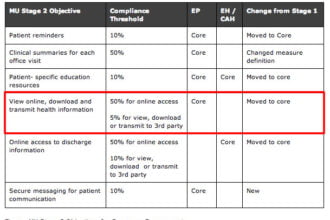Guests looking for 5-star accommodations with business centers, chef-prepared meals and spa services don’t have to check into luxury hotels. Rather, they can now access all of the comforts of home from their neighborhood hospital.
Guests looking for 5-star accommodations with business centers, chef-prepared meals and spa services don’t have to check into luxury hotels. Rather, they can now access all of the comforts of home from their neighborhood hospital. While the concierge care phenomenon began as a medical tourism trend, it has been co-opted by an increasing number of hospitals across the country.
What is Concierge Care?
Patients have traditionally demanded excellent clinical care while sacrificing their own personal needs. However, patient surveys show that the meeting of these same needs is a critical part of patient satisfaction. Concierge care addresses this gap.
The terms “concierge care” and “concierge medicine” are not interchangeable. While concierge medicine refers to clinical interactions, concierge care deals with the non-clinical aspects of a hospital stay. These complimentary services address a full range of needs, including arranging hotels and housing, transportation, business services, personal care services, spa beauty and spa appointments, and even entertainment and tourism. While the service itself its free, participants pay for the cost of the benefit.
Why Is Concierge Care Important?
Instant gratification is the hallmark of 21st century living: now more than ever, consumers demand immediate access to the products and services that help them meet their desired quality of life. Concierge services carry this trend into the healthcare arena. In doing so, patients — or “guests” — have more fulfilling experiences.
In fact, the shift toward a consumer-driven system — with everything from bedside Wi-Fi to family beds — has even affected how contemporary hospitals are being designed and built. Concierge services are in alignment with this imperative.
As administrators are well aware, today’s healthcare systems face increasingly stiff competition. The ability to offer these types of hospitality services helps hospitals gain a leading edge. And while amenities have always been a factor in patient satisfaction and hospital reputation, their importance has only grown as patients gain increasing say in which hospitals they select. In fact, some research indicates that non-clinical experiences now trump clinical reputation when it comes to hospital choice.
Beyond the Guests
But it’s not just patients who have access to healthcare concierge services. Hospitals like Vanderbilt are now offering concierge services to staff members, as well. Dubbed Vanderbilt Valet, the program attends to the personal needs — including everything from gift wrapping to car repairs — of doctors, nurses and other employees .
The employee concierge care trend began only five years ago or so, but it’s caught on quickly. In fact, Vanderbilt reports that despite the steep initial investment of $200,000 in its first year, the program is paying off across recruitment, retention and productivity.
While the importance of quality clinical care can’t be overstated, patient perception of the comprehensive hospital experience is deeply relevant. Concierge care offers increased patient satisfaction by bringing the comforts of home to the hospital bed.








